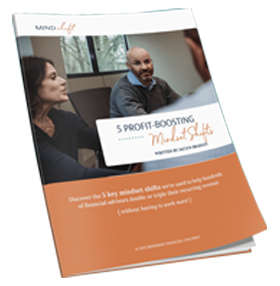Habits govern a big part of how we choose to run a business. It is easy to stay the course and do what has been done in prior years. Besides, you may have had the best year and not feel the need to change. Your clients may disagree.
The client landscape continues to evolve at such a fast pace. Modern family structures have become more complex and people are living longer. These complexities require an advisor to either level-up their offerings or continue to work as they always have, leaving more challenging planning cases to others or be limited to only selling a few products.
This client complexity can be beneficial for financial advisors open to shifting their business model and mindset. However, it is essential to note that seeking out and accepting more complex cases doesn’t mean walking away from smaller opportunities. There is a process my team and I use when working with advisors who are interested in adopting a team model. Here is a high-level overview of how we solve for this practice management shift.
Evaluate Your Current State
- Take a deep dive into your book of business.
- Define your top ten to twenty cases in 2022
- Then average the revenue generated by these cases to identify your sweet spot
- Lastly, don’t forget to assign the source of business for each as well. (This will help you identify the best ways to find new clients in your sweet spot.)
- Identify your natural abilities. With the help of state-of-the-art assessments like KOLBE, we can determine how you best work and where you (ideally) should be spending your time.
- Determine what skills are missing. Then, think through your ideal outcome—who do you need to develop relationships with to serve this market best?
Develop A Team & Get it Done
- Adopting an advisor-team approach allows all parties on the team to win.
- Whether the relationship is formal or informal, consider joining forces with another practitioner inside or outside the firm.
- Teaming up with advisors with specialized skills (e.g. attorney, estate planners, tax professionals) can broaden your reach.
- Identifying less experienced advisors who round out or complement your natural abilities and fill in any gaps allows you to spend your time on more complex cases.
- Teams with younger advisors tend to build stronger relationships with millennials who may receive an inheritance from aging baby boomers.
- Design the advisor compensation model for all involved. This model can vary from case to case.
At the end of the day, adding value to your clients is what is most important. Most clients view teams as “more professionals for the price of one.” The peace of mind associated with knowing all of their professional advisors are working towards one goal is extremely valuable; if handled correctly, it will result in many referrals.
Please contact me if you are interested in building a team (or developing an existing one) to level up your practice and need some guidance.


